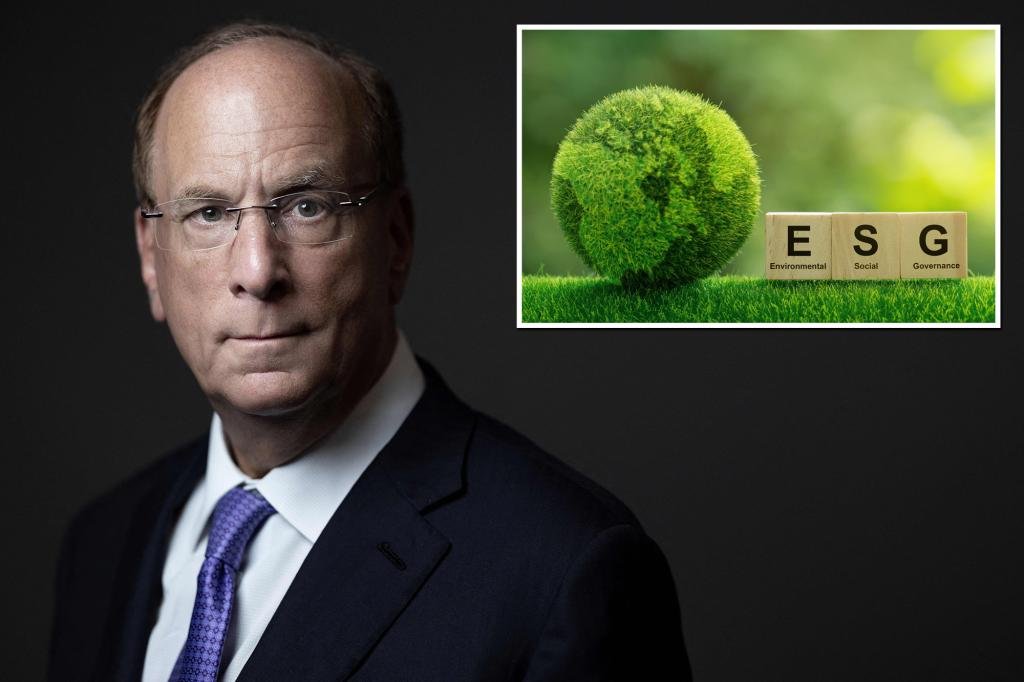ESG is on its way out — now that investors have been forced to wise up
It looks like the finance industry’s brief love affair with “responsible” investing is coming to an end.
Investment managers are turning on Environmental, Social, and Corporate Governance investing.
Speaking at the Aspen Festival of Ideas, BlackRock CEO Larry Fink announced he’d no longer be using the term “ESG.”
This will be a huge hit to the ESG industry not simply because BlackRock is the world’s largest asset management company, but because it was a pioneer in promoting ESG investment.
BlackRock is not alone.
Survey data from RBC Capital Markets finds that 56% of sustainable-fund debuts have re-labeled their products “thematic” rather than “ESG.”
Sustainable funds have recognized the ESG branding is toxic and are jumping ship.
Fink said he was abandoning the ESG terminology because it had become “politicized by both the left and right,” but there are reasons to think the recent turn on ESG may have deeper roots.
When ESG started to get popular in the past decade, it was met with enthusiasm from the marketing departments of the big firms.

But those tasked with having to select stocks groaned as the ESG mandates were handed down.
Modern investment is highly quantitative.
There are a lot of people and computers monitoring the success or failure of large portfolios.
Bad ideas can’t last long in the face of this scrutiny, at least if a company is being managed properly.
In addition to this, the computing power means that investment professionals mostly know what works and what doesn’t.

From the very beginning ESG looked like a dubious prospect to most investment professionals.
ESG works by assigning scores to companies based on their compliance with a range of environmental and social goals.
Yet the first thing you notice when you investigate ESG is that none of these goals are well-defined.
One study on ESG published in the Review of Finance found that: “ESG rating divergence is not merely a matter of varying definitions but a fundamental disagreement about the underlying data.”
The companies that compile the metrics used to allow investors to make investments based on ESG don’t agree on how to construct these metrics.
If an investor does not trust data, they usually won’t use it.
After all, there’s money on the line and if the data is garbage, then using it to invest the money is irresponsible.
This is why the enthusiasm for ESG was so annoying to serious investors.
Another annoying thing about ESG was trying to evaluate outcomes.
Usually in finance there are a few well-done studies showing if an investment strategy or style works or not.

But ESG marketing was so well-funded that we saw studies of varying degrees of quality pop up like mushrooms after rain.
As with the ESG ratings themselves, these studies did not agree with one another.
For example, a New York Stern School of Business study found more than a 1,000 research papers on ESG.
When it examined the results, it found 33% of the investor-focused studies showed positive outcomes for ESG-themed investments, and 67% showed neutral, mixed or negative results.

Investors often talk about signal and noise in investment.
The signal tells us how to undertake an investment that works.
The noise is just confusing and should be avoided at all costs.
The ESG literature, like the metrics themselves, was all noise, no signal.
Stern finance professor Aswath Damodaran took one look at ESG and mocked it as a “goodness gravy train.”
His sentiments were widely shared around serious, results-oriented investment professionals.
But the marketing departments could not help themselves, and so we got years of well-funded ESG pumping.
For these reasons, it’s not surprising that investors are tiring of the ESG fad.
Markets have been on the rocks for some months now.
The S&P500 is down around 7.8% off its late-2021 peak, while the tech-heavy NASDAQ is down around 15.4%.
Deals are drying up on Wall Street, and there’s chatter of job losses.
Investors are already reining in their spending with the price of luxury watches having fallen 19% in the last year.
Hard times in investment markets are being driven by the Fed’s tight monetary policy.

The first strategies that are dumped are the ones that were never taken all that seriously to begin with.
ESG was always all hype and no substance, and now that the good times are behind us, it’s no surprise that ESG is getting thrown under the bus.
Philip Pilkington is a macroeconomist and investment professional.




